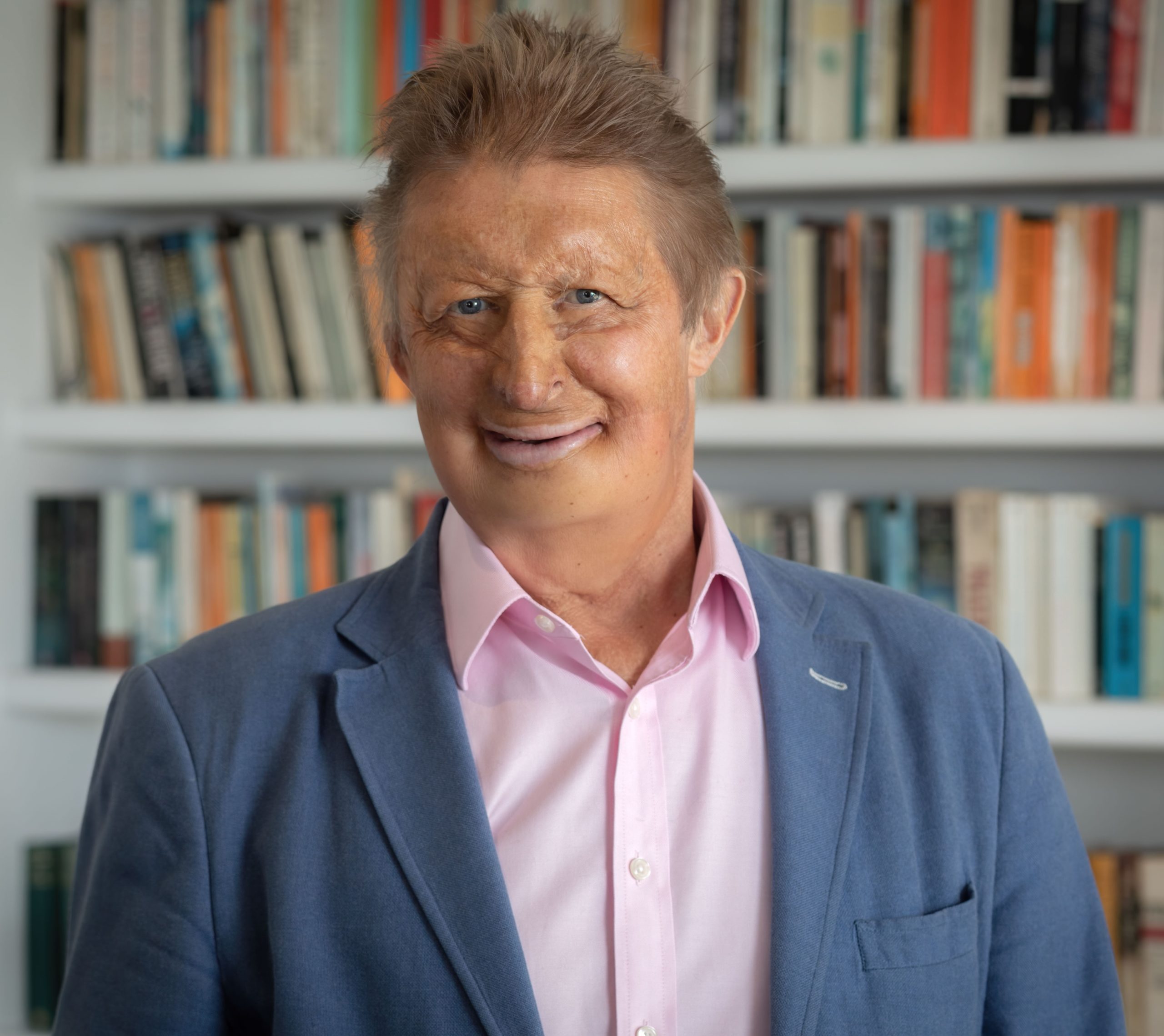
People with distinctive faces are understandably anxious about what life will be like now that the covid-19 lockdown has lifted. Covid-19 has already posed many challenges. There is some evidence that people with disfigurements may not be prioritised for access to ventilators if deemed vulnerable, and if a judgment is to be made around who has the “best chance” of survival.
Lockdown for someone with a cleft lip and palate, psoriasis, facial cancer, a portwine stain, or facial burn scars like mine has been a mixed experience. On the one hand, during lockdown we enjoyed weeks without the agonies of the public gaze; having to gear up every time you leave your home to face staring, comments, ridicule, and worse—especially in the school playground or on public transport—can be exhausting. Putting on the face you keep for these intrusions takes effort every single day as this film from Face Equality International about the experiences of people all around the world makes clear. As lockdowns are eased, that whole rigmarole has to be endured all over again.
The lockdown, enforced self-isolation or shielding, had downsides too: people with either acquired or congenital facial differences may have experienced extended periods of time unable to leave the house. The enforced lockdown may have brought back traumatic memories and can be heightened by a nervousness about reaching out to others, especially support networks that may have been vital in pre-covid days, without us realising it. Social isolation is no fun, and something many of us thought we had left behind by adapting to dealing with other people’s reactions more or less effectively.
And then there is handling the seemingly essential Zooms, Skypes, or other digital communications of this weird time. Anyone with a distinctive face cannot avoid seeing ourselves as others see us—which is not how we see ourselves in the mirror (it’s a reverse view). Changing Faces has put out some good advice on handling this.
Looking ahead, many with disfigurements may now be fretting about what it will be like to use face coverings—and worrying about how these will “stay on” if their ears are unusual like those with microtia. But they have become part of the new normal and we have to come to terms with the new reality of living with the virus—and with a vaccine many months from being available, that means wearing some form of facial protection will at least give people some reassurance.
For people with facial disfigurements, this is another double-edged sword. On the one hand, a far greater degree of social anonymity could result in social interactions of all sorts, especially on public transport and in public places, which could be a healthy step towards “face equality” perhaps.
Everyone is now invisibly different and appearance may cease to prompt tiresome face value judgments. Instead everyone may be judged by their talents, personality, and even attractiveness—or for their ingenious face masks! Uncalled-for staring, ridicule, and intrusive questions may disappear.
But on the other hand, wearing face masks will prevent people seeing my face and those of many people with cranio-facial conditions, the aftermath of facial cancer or a Bell’s palsy, or with a skin condition like psoriasis or acne. In my ideal of a fair post-covid society, we would all have a right to be seen, respected, and accepted, and the current absurd “face-perfect” judgements of our global society would be consigned to the dustbin of history.
It seems likely that we will need to wear face coverings for some years to come, which just might make it easier to argue the case for face equality for everyone, whatever their face looks like, free of prejudices and low expectations.
James Partridge is the Director of Face Equality International, an alliance of 36 NGOs and charities around the world working together to campaign for ‘face equality’ and challenge disfigurement prejudice and discrimination. Previously, he was the Founder (in 1992) and Chief Executive of Changing Faces, the leading UK charity supporting and representing people with disfigurements.
James’s new book ‘FACE IT: Facial Disfigurement and My Fight for Face Equality’ is available now.
